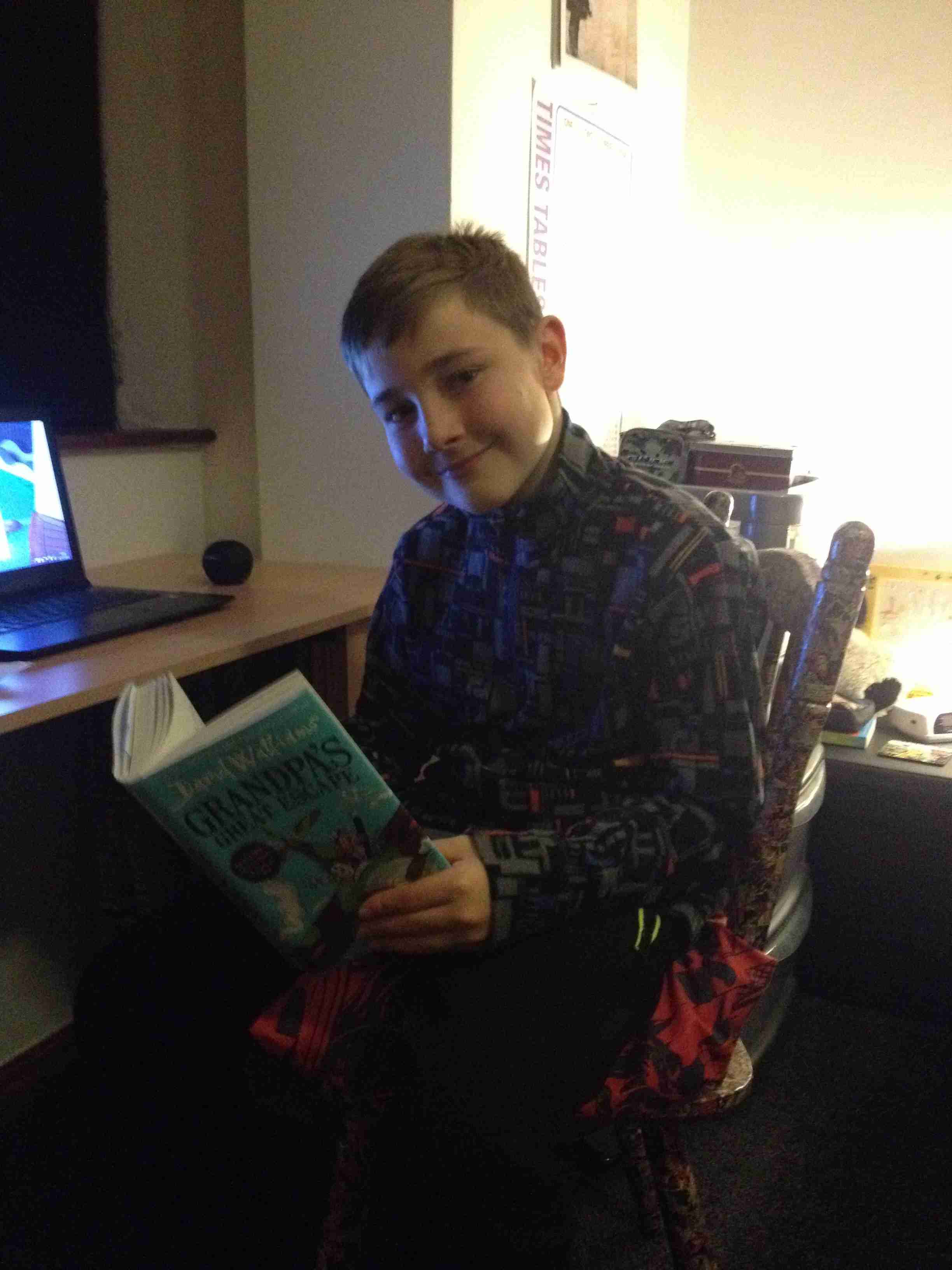Mark enrolled on the Easyread programme at the age of 11. A difficulty in understanding phonics meant that both his reading and spelling were affected.
Mark would often miss words out and replace them with substitute words. For example, “in” or “the” would often become something else. His struggles with reading meant that he often found it hard to comprehend what he was reading. When he would read with his parents, Mark would find it upsetting when his parents corrected his mistakes.
Fast forward four and a half months and Mark has finished with the Easyread programme. A change in tactics for learning to decode phonetically brought about big changes for Mark’s reading in under 30 lessons. After having changed the focus to work more on his spelling, Mark now sadly says goodbye to Easyread (he did really say he was sad to not be logging in to complete his daily lesson anymore!) and his reading and spelling skills continue to grow with the greater variety in reading material he now enjoys.

We caught up with Mark on Skype to hear all about his Easyread journey for ourselves.
Do you remember what reading was like before Easyread, Mark?
Really hard. I struggled working out the words. Before Easyread, I wouldn’t read out loud to anyone. Phonics were hard – I just remember reading books at school when I was younger and that’s how we learnt to read. And I was really bad at spellings.
What was your favourite part of the lessons? Least favourite?
I enjoyed doing the games – matching the words to the pictures. I like Gloop a lot. And the Alice in Wonderland book. I then saw it a few weeks later in the theatre actually.
The riddles were the hardest with just the characters. I’d think, “oooh, was it right? Wasn’t it?” and then you’d click on it and you were right all along!
I don’t really have a least favourite part – I liked all of it. I do admit Pinball is hard but it’s always good to have a challenge.
When did you start to notice things changing?
About two/three weeks after I started Easyread. I started reading more frequently and it became a lot easier for me. After I finished Easyread, I read to my mum and she could see a massive difference in my reading.
What books are you reading now? And how is spelling feeling for you?
Before I started Easyread I was in the middle of the Shouty Kid books. I just finished the first one about a month ago. I’m now on the second one. I’ve read all the David Walliams books too – they’re all amazing! I’m getting the new one for Christmas. Now, I try to read 15 minutes a day if I can.
Spelling became a lot easier but still it’s hard. I still struggle with spellings. We have weekly spelling practise at school, with tricky words like “claustrophobic”. Although, I did get 100% on the spelling test with “claustrophobic” in…!
So what’s your secret?
Now I try and visualise the Easyread characters above a word to try and spell it. I try and listen to the sounds of the words and break them up. Sometimes silent letters are really annoying. You never hear them but they’re always there.
The best words are the words that are easy to spell, like “betrayed” – you can hear every letter in it. The ones you can definitely tell what’s what.
I have a rhyme to help me remember some tricky words, like “people” and “because”.
What has the Easyread programme meant for you?
It’s definitely helped me a lot.
Now I’ve got a bit more confident. I’m more confident to volunteer to read out loud at school, but I do still shy away sometimes. But with the code with the letters [the Trainertext alphabet], I started pretending they were all there and tried to visualise them all being there and that really helped [when reading books outside of the programme].
It improved my knowledge of the reading basics that I didn’t learn at school. It helped me with my reading which helped me with my confidence and I became better at reading.
What are your favourite subjects at school?
I like music and drama.
So I guess reading has helped a lot with that?
It has. In drama club I’m doing a play and I’ve got to read and learn a script. I’m much more confident now in saying my lines. Before, everyone was saying that what I was saying was wrong.
It’s confusing when you don’t know what you’re doing and when you don’t understand. But it’s much better when you do.
Thanks Mark! I think that analogy sums up the way most people who struggle with reading feel.
Mark now goes on to play Simba in his school drama club’s new musical, and we look forward to hearing how he gets on! He’s also going to send us a book review of his favourite David Walliams book, and we can’t wait to share it with you.
– Maddie

